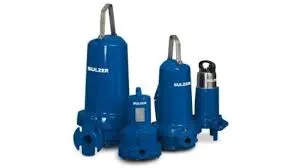English
- Afrikaans
- Albanian
- Amharic
- Arabic
- Armenian
- Azerbaijani
- Basque
- Belarusian
- Bengali
- Bosnian
- Bulgarian
- Catalan
- Cebuano
- Corsican
- Croatian
- Czech
- Danish
- Dutch
- English
- Esperanto
- Estonian
- Finnish
- French
- Frisian
- Galician
- Georgian
- German
- Greek
- Gujarati
- Haitian Creole
- hausa
- hawaiian
- Hebrew
- Hindi
- Miao
- Hungarian
- Icelandic
- igbo
- Indonesian
- irish
- Italian
- Japanese
- Javanese
- Kannada
- kazakh
- Khmer
- Rwandese
- Korean
- Kurdish
- Kyrgyz
- Lao
- Latin
- Latvian
- Lithuanian
- Luxembourgish
- Macedonian
- Malgashi
- Malay
- Malayalam
- Maltese
- Maori
- Marathi
- Mongolian
- Myanmar
- Nepali
- Norwegian
- Norwegian
- Occitan
- Pashto
- Persian
- Polish
- Portuguese
- Punjabi
- Romanian
- Russian
- Samoan
- Scottish Gaelic
- Serbian
- Sesotho
- Shona
- Sindhi
- Sinhala
- Slovak
- Slovenian
- Somali
- Spanish
- Sundanese
- Swahili
- Swedish
- Tagalog
- Tajik
- Tamil
- Tatar
- Telugu
- Thai
- Turkish
- Turkmen
- Ukrainian
- Urdu
- Uighur
- Uzbek
- Vietnamese
- Welsh
- Bantu
- Yiddish
- Yoruba
- Zulu
Telephone: +86 13120555503
Email: frank@cypump.com
Nov . 25, 2024 14:17 Back to list
oem metal lined slurry pump suppliers
Understanding OEM Metal Lined Slurry Pump Suppliers
In industrial applications, especially within mining, construction, and chemical sectors, the demand for efficient and reliable pumps is imperative. One critical category of pumps is the slurry pump, particularly OEM (Original Equipment Manufacturer) metal lined slurry pumps. These pumps are engineered to handle abrasive and corrosive materials, making them essential for various applications.
What Are OEM Metal Lined Slurry Pumps?
OEM metal lined slurry pumps are specifically designed with a metal lining to enhance durability and resistance to wear and tear caused by abrasive materials. Unlike rubber lined pumps, metal lined variants provide superior strength and longevity, making them ideal for transporting slurry—a mixture of solids and liquids that can be challenging to handle.
The construction of these pumps typically includes high-quality metals such as chrome, nickel, or stainless steel, designed to withstand harsh operational environments. These pumps are utilized in various industries due to their resilience and efficiency. They can manage a diverse range of slurry types, including those found in mining operations, wastewater treatment, and chemical processing.
Importance of Choosing the Right Supplier
Selecting a reliable OEM metal lined slurry pump supplier is paramount for ensuring optimal performance and longevity. An experienced supplier should possess a thorough understanding of the specific requirements of different industries to provide tailored solutions. Factors to consider when choosing a supplier include
1. Quality Assurance The supplier should comply with international quality standards and provide certifications for their products. This ensures the pumps meet the necessary performance criteria and minimizes the risk of failure.
2. Customization Options Each application has unique needs; thus, the supplier should offer customizable solutions. This could range from design alterations to the materials used, ensuring the pump is perfectly suited for the task.
oem metal lined slurry pump suppliers

3. Technical Expertise A knowledgeable supplier can offer significant insights into the best practices for pump selection and maintenance. Their expertise should help clients understand their options and make informed decisions that align with operational requirements.
4. After-Sales Support Quality after-sales service is crucial for any industrial equipment supplier. Ensure that the supplier provides comprehensive support, including installation guidance, maintenance services, and quick response times in case of any issues.
5. Reputation and Experience Research the supplier's history and reputation within the industry. Established suppliers who have maintained positive relationships with their clients and have demonstrated reliability are often a safer bet.
Key Applications of Metal Lined Slurry Pumps
The applications of OEM metal lined slurry pumps are vast. In mining, these pumps are crucial for transporting concentrated slurries of minerals and tailings. In the chemical industry, they effectively handle corrosive materials without the risk of degradation that lighter materials might pose. In wastewater treatment facilities, they are used to handle sludge efficiently, ensuring the system runs smoothly.
Furthermore, understanding the specific requirements of your application is essential. Factors such as the viscosity of the slurry, the concentration of solids, and the operating environment will dictate the type of pump necessary for optimal performance.
Conclusion
As industries continue to demand more efficient, sturdy, and reliable pumping solutions, OEM metal lined slurry pumps stand out as a critical choice. By partnering with a reputable supplier, businesses can ensure they are investing in high-quality pumping solutions that will enhance productivity and minimize operational downtime. Whether in mining, chemical processing, or wastewater management, the significance of choosing the right metal lined slurry pump cannot be overstated. Therefore, thorough research and consideration are key to making an informed decision that aligns with specific operational needs.
-
ISG Series Vertical Pipeline Pump - Chi Yuan Pumps | Advanced Engineering&Industrial Efficiency
NewsJul.30,2025
-
ISG Series Pipeline Pump - Chi Yuan Pumps | High Efficiency, Energy Saving
NewsJul.30,2025
-
ISG Series Vertical Pipeline Pump-Chi Yuan Pumps|High Efficiency&Reliable Performance
NewsJul.29,2025
-
ISG Series Vertical Pipeline Pump|High Efficiency&Low Noise
NewsJul.29,2025
-
ISG Series Vertical Pipeline Pump - Chi Yuan Pumps Co., LTD.|High Efficiency, Energy Conservation, Low Noise
NewsJul.29,2025
-
ISG Series Vertical Pipeline Pump-Chi Yuan Pumps Co., LTD.|High Efficiency&Energy-Saving
NewsJul.29,2025










